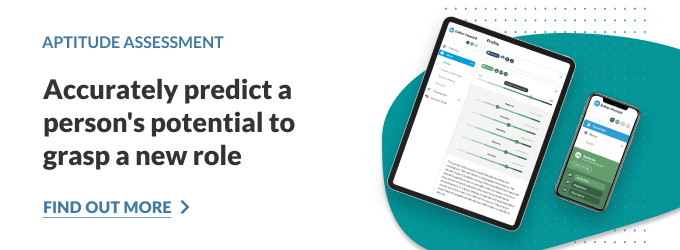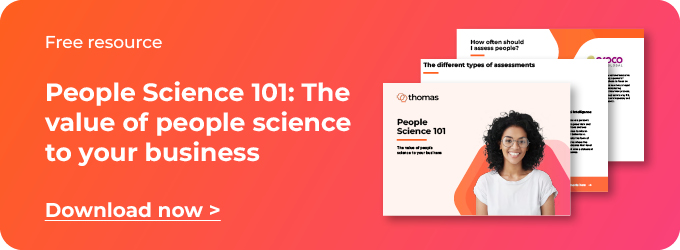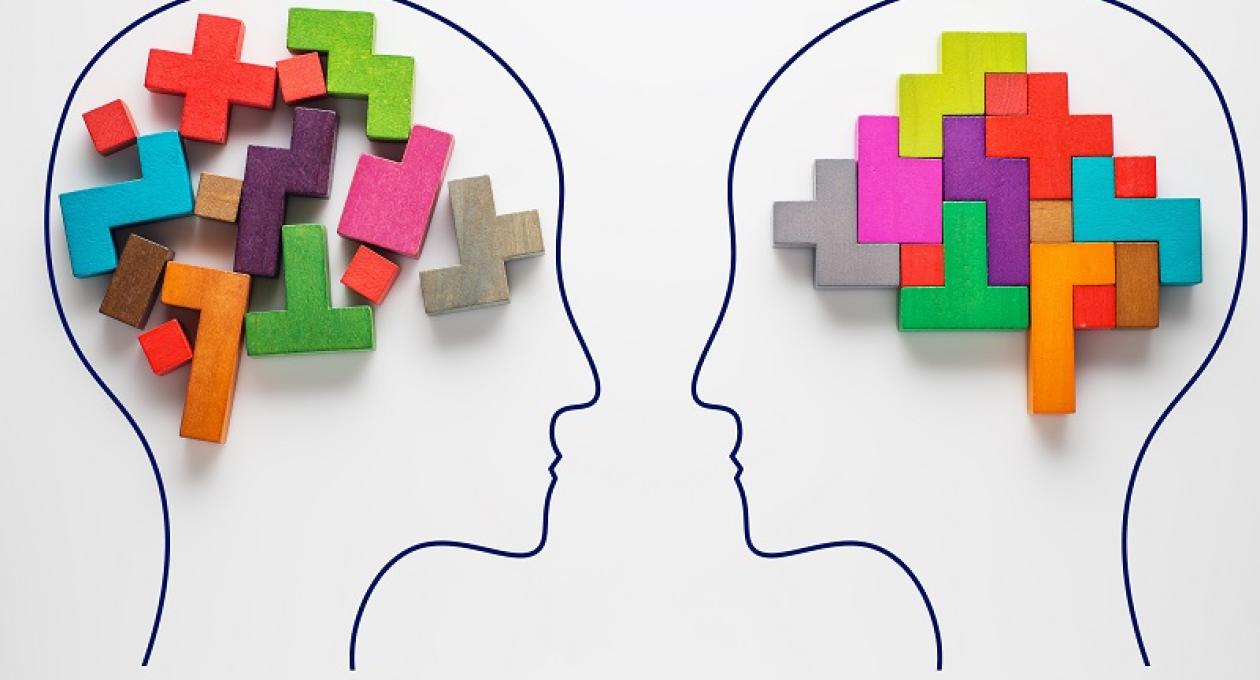Have you ever worked with someone that is able to take new information and extrapolate answers and think around situations without letting previous knowledge or information get in the way? Do you happen to do this on a daily basis?
That is fluid intelligence.
Brought about by psychologist Raymond Cattell in 1963, fluid intelligence was conceptualised as part of the general intelligence matrix which, he believed, was divided into two areas. Fluid intelligence and crystallized intelligence.
We are going to take a closer look at what fluid intelligence means, developing a greater understanding of how it is tested and measured, and the difference with crystallized intelligence.
The Thomas aptitude assessment will also help you get a better understanding of fluid intelligence and provide an effective measuring tool in the areas this field covers.

What does fluid intelligence mean?
Fluid intelligence is the ability to think abstractly, reason quickly and problem solve independent of any previously acquired knowledge. You will have come across, or maybe you are someone who can take new information and formulate ideas, theories and even problem solve regardless of the information you have built over time with knowledge and experience.
When it comes to thinking about different types of intelligence, you may have been thinking about two specific kinds of intelligence and even people. Those who have the ability to come up with solutions without much prior knowledge and then there are those who have got a body of knowledge and specialist set of skills which have been acquired over time. The former can be defined as fluid intelligence, the later can however be defined as crystallized intelligence.
It is common to hear that over time, people feel like their intelligence is declining. However, it is more accurate to say that fluid intelligence can decline and crystallized intelligence can increase.
Think about puzzles or problem solving strategies. Fluid intelligence is the key to unlocking these particular areas because, you will not necessarily come up with the solution before, so that level of abstract thinking is essential to find solutions.
Whilst crystallized intelligence is essential for many different aspects of life and in the workplace, there is a growing need for more fluid intelligence as well. We are developing workplaces which require more abstract thinking to solve complex problems than previous generations and we require that learning to help us comprehend and learn at a greater pace as well.
How is fluid intelligence tested and measured?
There are several different ways that fluid intelligence can be measured, this includes the Woodcock-Johnson Test of Cognitive Abilities, Raven’s Progressive Matrices and Wesschler Intelligence Scale for Children. Each look at different areas of fluid intelligence all with the same goal however of understanding how much or little someone exhibits these cognitive abilities.
The Woodcock-Johnson Test involves analysing categorical thinking and sequential reasoning. This is where puzzles in an ascending order of difficulties are presented and then used to test the candidate’s fluid intelligence in thinking patterns.
Raven’s Progessive Matrices evaluates the relationship between various mental representations. The test is a non-verbal multiple choice that “requires the completion of several drawings based on the test takers’ ability to notice pertinent features based on the spatial positioning of several objects.”

Finally, the Wesschler Intelligence Scale for Children relies exclusively on visual stimuli and is a pure non-verbal test that consists of a matrix reasoning test and a picture concept assessment.
It is commonly understood that fluid intelligence can decrease over time with it peaking in the late 20s of most individuals. This is thought to be because we need less of the abilities fluid intelligence brings and rely more on accumulated knowledge and experience to function in our day-to-day activities. Some studies have even suggested that our fluid intelligence doesn’t decrease until we hit our 40s.
However, it is important to still test these skills the older we get. From general brain function to being able to understand what roles we are suited to in our work. Yes, employers and recruiting managers can identify more suitable candidates from these kinds of tests and provide greater insight into the candidates from the the levels of fluid intelligence and crystallized intelligence results more than just a C.V. or face-to-face interview.
Fluid intelligence vs crystallized intelligence
Crystallised intelligence is based on facts and rooted in experience. As we age, our fluid intelligence will decrease whilst crystallized intelligence will continue to increase, peaking into the 60s and 70s. As with fluid intelligence, you will start developing this kind of intelligence as a child, and the older you get, the more you are to rely on it because you will have experienced more to draw from.
Whilst you may consider them to be separate, they are closely interlinked and due to the multiplicity of tasks, we utilise both in many of the same situations. For example, in a maths exam, we may use fluid intelligence to formulate a strategy to respond to the questions in a set amount of time but we will use crystallized intelligence in order to be able to answer the questions.
In fluid intelligence we can:
- Solve problems without requiring previous knowledge
- Use greater abstract thinking to break down issues, puzzles and mental roadblocks to find solutions
In crystallised intelligence we can:
- Use previous experience and knowledge to help solve problems
- Have an awareness of situations that we are familiar with to help navigate us
It used to be considered that once fluid intelligence peaked, there was no way to train this, or rekindle the benefits of this kind of thinking. However, studies have shown that fluid intelligence can be managed the older we get and even re-ignited thanks to brain training games and applications when used correctly.
There are many roles where both types of intelligence are required but with the ever changing business landscape and the role of technology in different fields, fluid intelligence is being touted as one of the big strategic management advantages over the coming decade.
With fluid intelligence’s ability to not take what has happened in the past as a point of reference, the ability to acquire new information and formulate new strategies without bias is going to be essential in navigating the business waters over the coming decade.
Recruitment managers and hiring specialists would be better placed testing fluid intelligence levels for many different roles in a business than just acquired knowledge to see where the greater level of potential success can lie.
Fluid intelligence is the ability to to think abstractly, reason quickly and problem solve independent of any previously acquired knowledge. Whilst it is considered separate to crystallized intelligence, they are closely interlinked and due to the multiplicity of tasks, we utilise both in many of the same situations.
Being able to understand the challenges that businesses face over the next decade, fluid intelligence is being hotly debated and tipped to be of critical importance in the business world. Knowing how to accurately assess fluid intelligence is thus, highly important.
Thomas has a number of assessments that measure the attributes associated with fluid intelligence to help you recruit smarter for the workplace. To find out more about our assessments, speak to one of our team.





